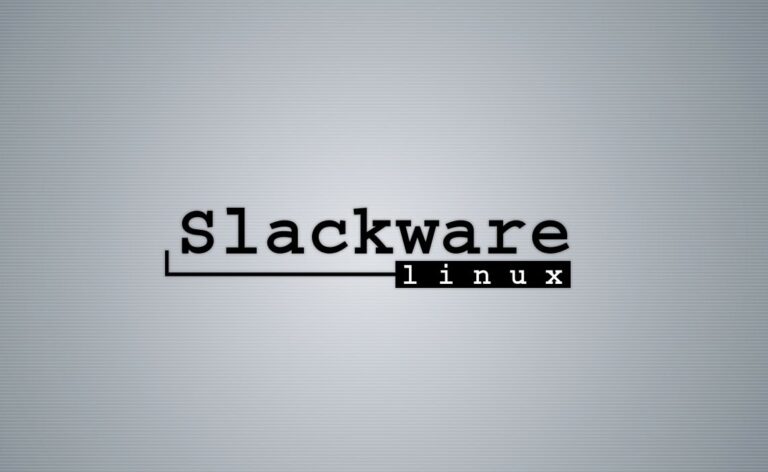– We will call you back
Workflows have a similar story. It’s difficult just to take a person, put him to work and say: “Look, it is necessary that everything is fine here.” It is necessary to start right away with questions, but what, in fact, is abnormal now, and most importantly – why? And if with extremely IT projects it is still possible to somehow objectively evaluate work as “good – medium – bad”, then in areas where interpersonal communication comes into play, things are a little different. But this does not mean that here, too, something cannot be automated and fixed.
Yes, we are again about HR. The industry itself, in principle, is more than conservative in nature, there are not so often revolutions (in the good sense of the word) or the introduction of methodologies that greatly simplify life. Therefore, we have to do everything ourselves.

In this post, we will talk about our feedback system (and from candidates for interviews, and from managers, and from employees). About how to use it to bring a little gamification to HR and dilute workdays, how to track your weakest points and what to do about it later.
The psychology of recall
You probably noticed that many people are arranged so that they will write a review on something in two cases. The first is when something in the service’s work went completely wrong, a person turns on a berserker, writes reviews on social networks, tagging the company itself and everyone he knows from there. The second is when human expectations were exceeded, and in the best sense. The bank quickly helped in a difficult situation, the online store along with the goods put some cool bonus, your favorite restaurant fed extremely tasty. Okay, okay, there’s another third case, which often begins with the phrases “Put us 5 stars on the Market, and we give you 100 rubles to the phone”, but we will not take into account such strange behavior in a post.
So here. In general, reviews are left only if something is not very like, or if something is very like. From extreme to extreme. If a person just has everything OK and the service worked as intended, then the percentage of users who are going to write something about this is not so great. On the one hand, it is understandable, everything just worked, as it should, it’s a variant of the norm, why spend time and write something. On the other hand, the creators of the service often lack this. Therefore, thanks to those who write reviews in such cases, and when they notice some minor flaws.
Now imagine the work of HR. Interviews, negotiations, questions, assignments, additional technical interviews, communication with the customer and more.
Often for companies this is generally a blind spot. The candidate came, did not pass the interview – he is free, the next one, they work on the stream. But here the thing is that even a person who did not pass the interview, or who passed, but went into denial himself, is a carrier of knowledge that is useful to you. With it, you can soberly learn about your company things that are otherwise difficult to grab.
For example, you want to collect normal statistics of the selection, and from the input you just have numbers in the form of the number of candidates left. Can I do something with them? In principle, yes, this is also important. But you can collect a bunch of much more useful information, if you talk to people and generally ask how they process the interview as a whole.
Often, they underestimate the fact that the company looks in the eyes of the candidates, and there are a lot of parameters to consider.
Feedback
Imagine the situation. The man came for an interview, all previous negotiations with him were in order and on joyful positive notes, but something went wrong at the technical interview right away. And the questions seemed to be normal, and the answers were correct, and in principle, nothing boded. But no, the person went into denial, the position is not closed, the candidate is dissatisfied.
If you do not collect feedback, then he will simply leave, and the recruiter will go to work with the following.
But it turns out that if you collect these data from a person, using the example of a real case.
The guy talked to recruiters by mail, was interested in the activities of the company, wanted to go to work with us. I came for an interview, and the security guard at the entrance to the business center answered something much less politely than he should. And that's it, the mood is down, the person is upset. Moreover, it may even be some kind of third-party guard from the BC itself, rather than from the bank, but still, in the eyes of a person – he went for an interview in the company, he was cheated in the process. He will associate this guard with part of the interview.
It is clear that everything here is highly dependent on the person, and someone will happily tell such a guard where and how he can go, and he will go and quickly solve all the problems in a technical interview. But this must also be taken into account. But what if you have 10 failures per month due to the fact that the guard is sitting and, in principle, is rude to everyone from time to time? If you do not know about such trifles, they will remain sticks in the wheel. If you know about this, you can take action.
And there are many such cases, even much smaller ones. Someone might not like the interview due to the fact that in the meeting room the air conditioner was switched to ICE HELL mode, and then the person sneezed for half a week. Someone would be confused by a mug with a tea bag on the windowsill in the meeting room, where an hour ago the developers had a sprint.
It may seem that these are completely effeminate moods, and people come to work in this way to get a job, and not to collect dust on the inside of the table with their finger. But all these little things are what make up the impression of your company. About you as an employer. A dirty chair, meeting rooms on the ground floors, cold, hot, a security guard is rude, the doors at the BC open, the access system is stupid, the head is strangely joking, the recruiter has a sticker on the laptop on the verge of reason – and so on and so forth.
We began to collect such things from each person who was at our interview. And not only in IT-selection, but also in extras. As you know, a lot of data. Our guys wrote in a month and a half a special system that allows you to take into account feedback from people at each stage of the funnel – entering the eychar into the database, first communication, interviews, technical interviews, tasks and everything else.
What are the benefits and for whom
In principle, we are getting close to the win-win situation, see.
Time. Benefits for Recruiters
They begin to see their own weaknesses, because the feedback is quite detailed and vivid. For example, “Ask Masha not to ask technical questions with a smart look anymore, it's not her”, “I waited 20 minutes until the recruiter took me from the reception”, “They said they would call me back in a day, but they called in 5,” “Katya would be nice get enough sleep to start, ”and many other reviews of situations in which many of the readers are likely to have been themselves.

This is also a small element of gamification for them. The system collects reviews, builds a rating of recruiters, certain buns fly for it. The rating was made one of the parameters when taking into account KPI, and it works only as a plus. Your rating is good – cool, it works as an additional modifier, the premium will be higher. Not a very high rating? It happens, draw conclusions. There will be no additional values for calculating the premium. Of course, this does not cancel the prize itself and there are no penalties here.
Two. Benefits for Candidates
Here, maybe, not specifically for those candidates who left feedback, but for candidates as entities in principle. The more detailed and more often they write to us about our shortcomings, the faster we will cut them out. Although, there are often cases when the same person then comes for interviews in other positions. Or leaves the company, and then comes to work again. And it can be noted that, they say, it's cool, though the guys read the feedback, they’re not so furious anymore.
Three. Benefits for Leaders
Managers as customers of this whole business are directly interested in the effectiveness of the right selection. And here we give them a detailed dashboard with various useful numbers, data, reviews, controversial places in the process and other good.
Plus, it’s also useful for managers to read that people on the other side of the table speak directly and honestly about them. Helps a sober look at their own work.
Four. Business and process benefits
If earlier we could suspect that some steps in the process are unnecessary, clumsy and worth finishing them, then we could just tell the business about this at meetings. Like, we feel like this. Surely it is. It is clear that for business and management such feelings and predictions are so-so criteria for making decisions.
And now we have on hand documented feedback from the direct participants in the process. We can visualize it easier and bring it to a business on a plate, show where and what people most often pay attention to, what irritates everyone the most, where we noticeably lose and so on.
How does it all work
We had a hypothesis that people when filling out the form may not indicate the real reasons for the refusal, but those that are simply among the first ones indicated in the survey. The hypothesis was not confirmed – we shuffled the points, and if, for example, a person wanted to mark the “level of reward” as a necessary criterion, then he would go to this point wherever he was placed.
All visualization of this data is done in Power BI. At times, we derive a tag cloud for clarity, suddenly something suddenly began to annoy everyone often.
We also send letters with a request to give feedback carefully so as not to bother people – some time after communication and once. Because if you write too often with a feedback request, “And write us a feedback. And now? Will you write today? You haven’t answered for a week already ”, that is, the probability is actually to quickly get an answer. True, he may not quite like it.
Total
We launched this about a year ago, we already see obvious benefits for ourselves, changed a little those things that we were often told about, began to prepare more informative reports for the business, and we pumped up the interviews ourselves.
In terms of numbers, this is so far – since the beginning of the year, we have sent 57,617 profiles. In response, 6,454 completed. As you can see, I want to strive for a much higher conversion, because 11 percent is not the ultimate dream. On the other hand, we have 6.5 thousand units of detailed and useful live feedback.
Well and once again briefly about the main benefits of the system:
- helps to find out the process weaknesses
- shows what exactly annoys candidates during the interview
- shows the real picture of people perceiving your company. And not as you thought up there.
- notes the shortcomings of the leaders themselves during interviews (this also happens)
- Brings a small element of gamification and additional bonuses to recruiters
- allows you to build detailed reports on the effectiveness of the selection at each stage.
The main thing is that it helps not to become numb at all in the aquarium when you do not have normal data about what is happening. Because if you are a big company and think that everything is cool and it’s not worth collecting feedback about the real situation, then it won’t be cool.
It won't be cool at all.




